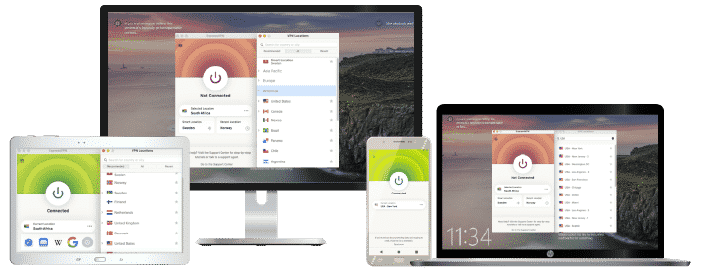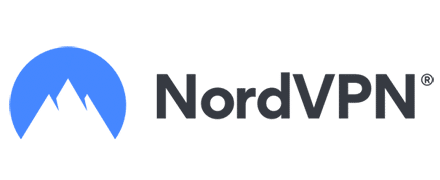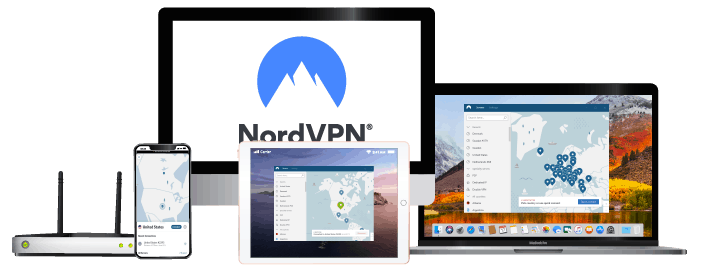Best Business VPN of 2024
Cybersecurity is a paramount concern for businesses in the current digital landscape. Ransomware and other cyber threats drive organizations to seek robust methods of securing data and connections. Virtual private networks (VPNs) have emerged as an attractive solution, offering security along with access to foreign markets and protection for remote workers.
Selecting the most suitable VPN service among myriad providers can be daunting. We have analyzed 16 leading VPN providers and compiled this list of the top 10 business VPNs in 2024.
ExpressVPN
Overall score: 9.8
- Super-fast servers
- AES 256-bit encryption
- Supports private protocol, Lightway
- Money-back guarantee
30-Day Money-Back Guarantee
NordVPN
Overall score: 9.6
- Incredibly fast servers
- Great security features
- Verified no-logs policy
- Unblocks streaming platforms
30-Day Money-Back Guarantee
Surfshark
Overall score: 9.5
- Allows unlimited simultaneous connections
- Integrates Stealth mode
- Multihop feature available
- 3,000+ servers
30-Day Money-Back Guarantee
What Is a Business VPN?
A virtual private network (VPN) is software that connects users’ devices to a server, permitting access to the internet via that server. A business VPN has additional features tailored for corporate use, such as dedicated IP addresses and team management consoles.
Businesses generally utilize two types of VPN connections: remote access VPNs and site-to-site VPNs. Remote access VPNs provide temporary external access to company resources, while site-to-site ones establish long-term encrypted links between offices or sites.
Benefits (and Drawbacks) of Business VPNs
Understanding potential benefits and drawbacks of business VPNs is crucial for informed decision-making.
Pro: Improved Network and Data Security
VPNs enable anonymous operation when needed, evading data collection efforts by various entities including cybercriminals.
Pro: Remote Work Safety
With remote work comes increased risk of data breaches due to unsecured network connections. Utilizing a reliable business class VPN ensures safety when accessing sensitive company resources remotely.
Pro: Access Geo-Locked Content
VPNs circumvent geographical restrictions imposed on web content by appearing as if coming from another country, allowing access even in restrictive nations like Turkey or China.
Pro: Reduced Operational and Maintenance Costs
As an affordable cybersecurity solution, monthly fees for business class vpn services range from $3-$12 USD per user, making it an ideal option for organizations of all sizes.
Con: Slower Internet Speeds
Encryption processes used by VPNs can potentially reduce connection speeds and cause intermittent disconnections.
Con: Lack of Device Flexibility
While most popular VPNs support mainstream devices, older or niche operating systems may encounter compatibility issues.
Con: VPNs Don’t Guarantee Full Anonymity
Despite the primary purpose of VPNs being anonymity, users can still be exposed due to DNS leaks or disconnections. Additionally, VPN providers may share data with government entities under certain circumstances.
Con: Scalability Concerns
VPNs might not be suitable for businesses requiring continuous and heavy network traffic, as they can bottleneck parallel connections. Overcoming this limitation could necessitate significant investment that might not be feasible for all organizations.
How To Choose the Best Business VPN
Selecting a suitable business VPN involves various factors such as essential features, security measures, and provider location. In this article, we discuss key aspects that businesses should consider when searching for an ideal VPN.
Split Tunneling
This feature permits certain traffic to bypass the VPN while retaining direct internet access. Split tunneling enables businesses to maintain security through the VPN while adapting to diverse operational scenarios.
Multifactor Authentication
Considered a standard in cybersecurity, the absence of multifactor authentication can impact insurance coverage. Cyber insurance providers often mandate implementation of this measure in order to safeguard customer data and maintain favorable rates.
Dedicated IP
A dedicated IP add-on establishes a unique IP address for users instead of shared IPs. This option facilitates secure connections for remote workers by allocating specific IP addresses rather than varying shared ones with each new connection.
Kill Switch
To preserve anonymity and protect company data, a kill switch prevents devices from transmitting information when disconnected from the VPN. This ensures sensitive data does not become vulnerable during interrupted sessions.
Number of Connected Devices
Businesses should opt for VPNs that accommodate multiple simultaneous connections per subscription, allowing seamless integration across networks comprising employees, contractors, and third parties.
Server Locations
An optimal business VPN must offer multiple server locations across diverse countries and continents. This enhances browsing anonymity while mitigating potential performance or connection issues through distributed user allocation on various servers.
How Much Does a Business VPN Cost?
Virtual Private Networks, or VPNs, have become crucial for businesses in today’s digital era. They ensure secure and private communication between employees and the company’s information network. Consequently, selecting an appropriate VPN service is crucial to safeguard data privacy and minimize cyber threats. In this article, we will discuss the cost of various business VPN services while considering factors that impact pricing.
Ultimately, the cost of a business VPN depends upon its specifications and related subscription packages offered by providers. While some companies present limited-functionality free versions or other incentives to tempt new customers, more comprehensive plans typically come at a higher price point ranging from $3 up to $20 per month based on our research. By keeping an eye out for promotional offers and leveraging free trials or money-back guarantees, businesses can make a more informed choice when selecting their preferred VPN service.
Subscription Plans
VPN providers typically offer monthly or yearly subscriptions with varying costs. These fees depend on factors such as server locations, speed, and security features offered. A free version with limited functionality may be provided by certain companies like TunnelBear.
Monthly Subscriptions
Businesses seeking shorter commitments can opt for monthly plans that generally range from $12.99 per month (NordVPN) upwards depending on the provider and package chosen.
Yearly Subscriptions
Those who prefer longer-term options can consider yearly subscriptions starting at approximately $3 to $5 per month based on our research across providers.
Biennial Plans
Purchasing plans spanning two years will often yield greater savings compared to shorter durations due to providers’ promotional offers.
Money-Saving Tactics
Free Trials and Money-Back Guarantees
Many companies implement strategies to attract potential clients using free trials or money-back guarantees. These options provide a low-risk approach for users to test a given VPN service before committing financially.
Discounts and Promotions
Occasionally, certain providers may offer discounts on their subscription prices during limited-time promotions throughout the year; it is wise for businesses seeking affordable options to monitor these deals closely when selecting a plan.
Conclusion
In summary, selecting an ideal business VPN requires careful consideration of essential features such as split tunneling, dedicated IPs, multifactor authentication and server locations. A secure and efficient solution will provide robust protection while accommodating your organization’s unique needs.





